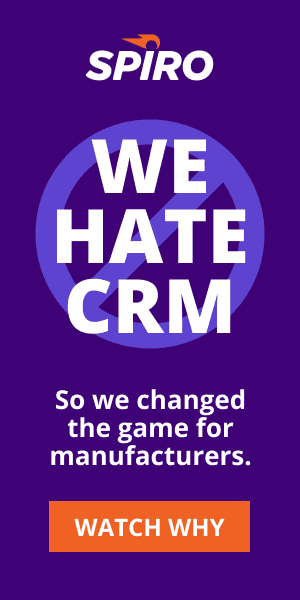7 Common Sales Job Interview Questions and How to Answer Them Correctly
So you finally landed an interview for the sales job you’ve always wanted. You’ve timed your haircut to perfectly coincide with the interview date, and have an amazing outfit picked out that makes you look like Daniel Craig in 007, or Jessica Chastain in Miss Sloane.
But looking fabulous isn’t going to be enough. You need to be prepared to answer the interview questions and answer them in such a way that you’ll land the job and be able to spend your commission checks paying off the credit card bills for the outfits you just bought. We’re here to help! Here are the most common sales-job interview questions, along with the right way to answer each one:
1. “Why do you want this job?”
The best way to answer this question is by incorporating what you’ve learned about the company (you should do as much research on the company, its products, and successes as possible), with your personal goals and how they align with the position. Use a personal story wherever you can to keep the interviewer engaged. Remember one key thing during your interviews, it’s not about what you want, it’s about what you can to do provide an immense amount of value to the company.
2. “What’s your biggest weakness?”
This is a good question because it can show the interviewer your capacity for self-awareness and humility. Don’t give transparently self-serving answers like “I’m a perfectionist.” A true perfectionist would never answer the question like that. Acknowledge an area where you think you can improve, show your willingness for taking on personal development, and say that it’s something you’re working on because everyone always has room for improvement.
3. “How do you feel about prospecting?”
In sales, your pipeline is everything, so there’s only one right answer to this question. You must acknowledge that you understand how important prospecting is when it comes to sales success, and make it clear that consistently and aggressively prospecting is one of your top priorities. If you prevaricate and waffle about prospecting, it’ll tell the interviewer that getting you to pick up the phone or send an email is going to take effort, which is the last thing any sales leader wants to hear.
4. “What is your biggest strength?”
This is a difficult question to screw up, because it’s an opportunity to showcase the things you’re good at. Try to highlight your key attributes and how they align with the job description. If it’s a high-volume sales position, talk about your ability to multi-task effectively and with enthusiasm. If the role has a longer sales-cycle, let the interviewer know about your grit and ability to build strong relationships over time. Don’t ever talk about your ability to funnel an entire six-pack of PBR.
5. “Tell me about your biggest sale.”
Another common interview sales question, this one is less about the size of the deal and more about what YOU did to land it. So if the truth is that an already hot prospect called your office and you were the one lucky enough to pick up the phone that day, you’re going to want to highlight what it is that you did to push it through. You could also flip this question on its head and instead pivot to talk about a smaller but more complicated deal that you closed to show the interviewer your tenacity and willingness to get things done.
6. “Why did you leave your last job?”
This is a tougher question because the wrong answer could make you look bad in front of the interviewer. You want to balance honesty with tact, and make sure not to badmouth anyone. First, bring up something positive about the position – maybe how much you learned there. Then, talk about what you’re looking for in your new position that your last one didn’t have, whether it’s a higher potential income, more support from leadership, or an industry that you find more compelling.
7. “Tell me about a deal you lost.”
This is another question designed to test your capacity for self-reflection, so the answer has to be framed in the context of what you learned. Don’t be afraid to admit a mistake on your part, as long as you also incorporate the lesson that you learned from that mistake. Being vulnerable enough to admit that you did something wrong is a great way to build rapport with your interviewer, and it’ll show that you’re not going to melt down when you get some constructive criticism from your next boss.

